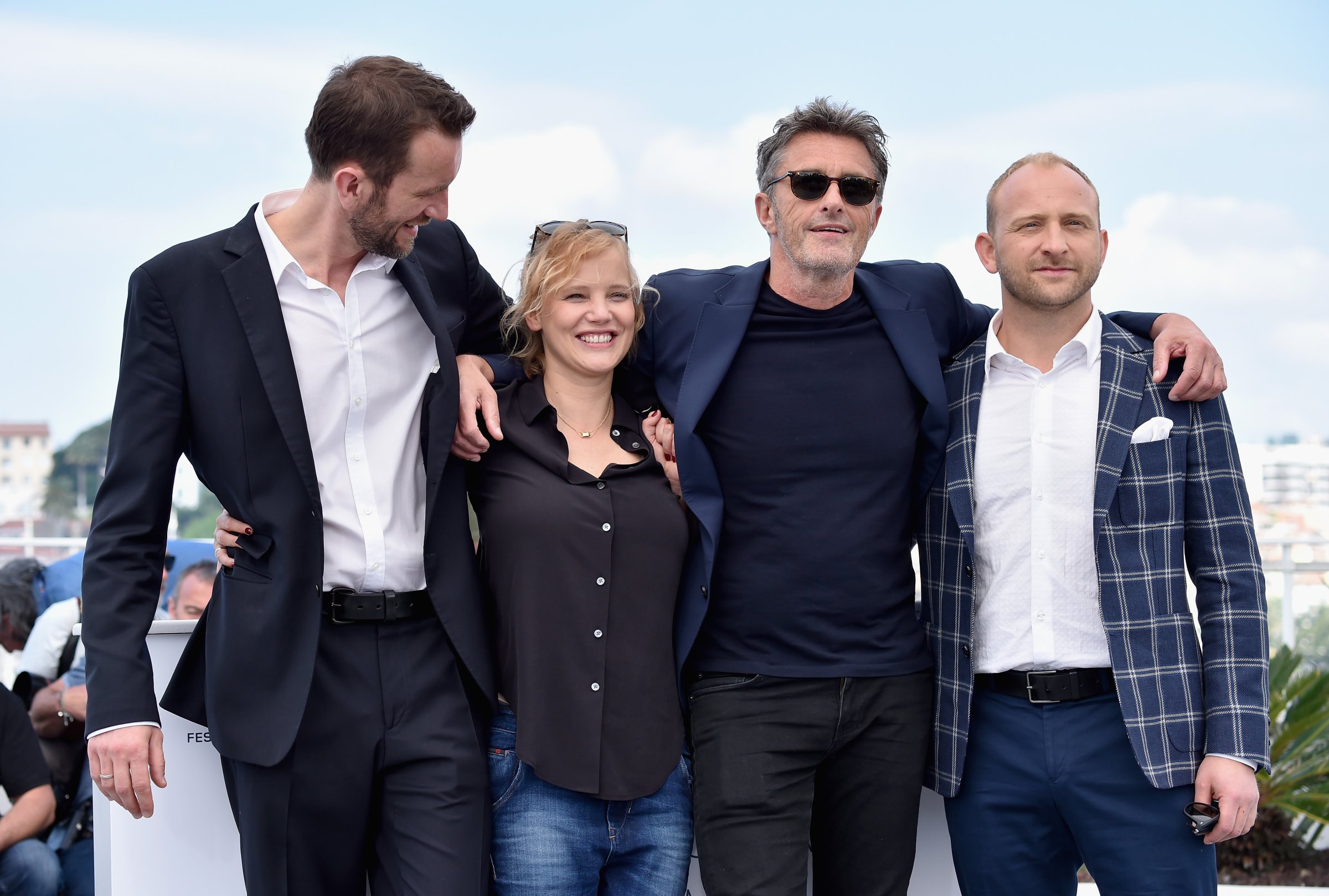
The opening of Pawel Pawlikowski’s terrific, smoky-cool love story Cold War, playing in competition here in Cannes, gives you no clue to what lies ahead: chickens. Snow. A country fiddler in a tattered tweed coat. Later, more chickens. Mud. But this picture moves, like a silvery ghost, from the Polish countryside in 1949, to Warsaw and Berlin, to the nightclubs of Paris and then—well, never mind. Cold War—shot, like Pawlikowski’s austere 2013 art-house hit Ida, in lustrous black and white—is set in a bleak era in recent Polish history and is dedicated to the memory of Pawlikowski’s parents. Yet it deftly walks the line between appropriately somber and great, sophisticated fun. It’s one of the high points of the festival’s early days.
Partners in work and possibly in life as well, Wiktor (Tomasz Kot, dashing and magnetic, like a Polish Clive Owen) and Irena (Agata Kulesza, who starred as the young novitiate Wanda in Ida) are Harry Smith types traveling the postwar Polish countryside, making recordings of regional singers and musicians. They’re putting together a troupe that will highlight the nation’s finest folk-art performers—when assembled, it will be a group of robust young men and women decked out in traditional Polish dress and performing peasant dances and sweet songs about embroidering shirts for their loved ones. A pouty blonde, Joanna Kulig’s Zula, shows up for one of the mass tryouts—with her appraising eyes and obvious city-mouse aspirations, she’s an Eastern Bloc femme fatale. Irena picks up immediately on Zula’s perfumey vibes and tries to warn her partner. Too late. He’s a goner from the start, a gorgeous lug who’s all too ready to be a schmuck for love.
Wiktor, unlike Irena, caves immediately when Polish officials give their stamp of approval to the musical purity of the troupe—they just want a few changes made. Can’t the group do more songs about, say, agricultural reform? Before long, the ensemble is singing hymns of praise to Stalin. By this time, Irena has had the good sense to clear out, and Wiktor and Zula are tightly entwined in their flower crown of love. And yet, next thing you know, he’s hunched over a piano in the black-pearl interior of a Paris nightclub, coaxing lovesick chords from the instrument’s depths.
That’s not the end of the story. It’s hardly even the beginning. Cold War is a crisply controlled saga of romantic torture, glamour, forbidden border crossings and more betrayals than you can shake a black silk stocking at. To some degree, this is a rather serious movie about treacherous love in tough times. But you don’t have to hang that kind of weight on its shoulders to enjoy it—in fact, it’s better if you don’t. Pawlikowski keeps a tight rein on the story’s tone and mood, and perhaps it’s by design that you don’t really see the love between Zula and Wiktor develop: It springs fully formed, like Athena bursting from the head of Zeus. It’s that fierce and heartless. But this duo’s ardor burns clean and cool, like a Sobranie, and Kulig is the flint. At one point Zula, having escaped her former country-mouse existence and exchanged it for nightclub sophistication, coos into a microphone as if it were an extension of her semi-ruthless soul. But in the end, like poor Wiktor, she’s a fool for love. They’re citizens of a nation they’ve invented themselves, a place where the only way to keep the peace is to set the whole place ablaze.
More Must-Reads From TIME
- The 100 Most Influential People of 2024
- The Revolution of Yulia Navalnaya
- 6 Compliments That Land Every Time
- What's the Deal With the Bitcoin Halving?
- If You're Dating Right Now , You're Brave: Column
- The AI That Could Heal a Divided Internet
- Fallout Is a Brilliant Model for the Future of Video Game Adaptations
- Want Weekly Recs on What to Watch, Read, and More? Sign Up for Worth Your Time
Contact us at letters@time.com